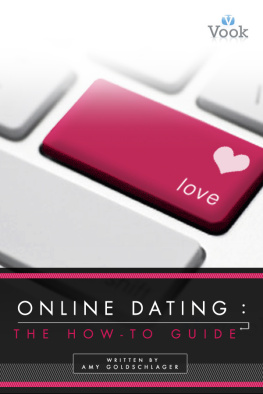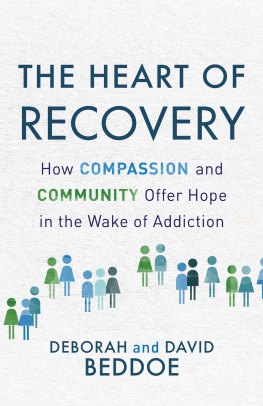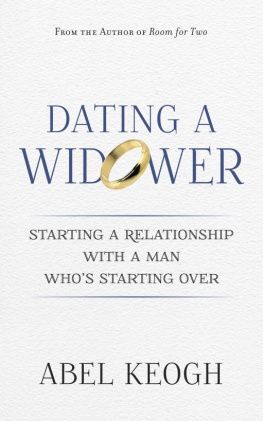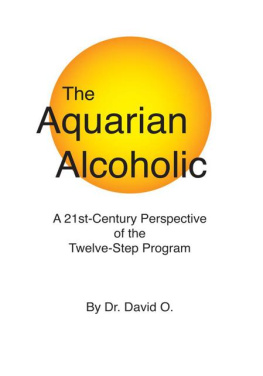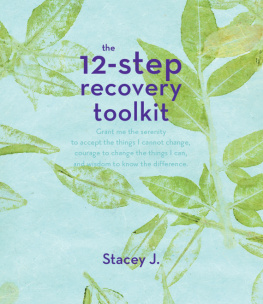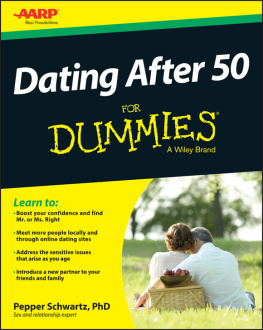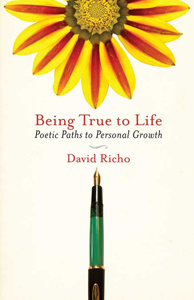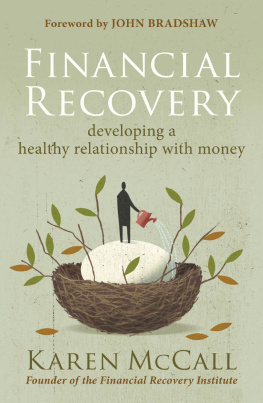[GIRL] FRIEND OF BILL

Hazelden Publishing
Center City, Minnesota 55012
800-328-9000
hazelden.org/bookstore
2014 by Karen Nagy
All rights reserved. Published 2014.
No part of this publication, either print or electronic, may be reproduced in any form or by any means without the express written permission of the publisher. Failure to comply with these terms may expose you to legal action and damages for copyright infringement.
LIBRARY OF CONGRESS CATALOGING-IN-PUBLICATION DATA
Nagy, Karen (Professor)
Girlfriend of Bill : 12 things you need to know about dating someone in recovery / Karen Nagy.
pages cm
ISBN 978-1-61649-527-5 (ebook)
1. Recovering alcoholics. 2. Recovering addicts. 3. Dating (Social customs) 4. Interpersonal relations. I. Title.
HV5275.N34 2014
362.29'13dc23
2013044760
EDITORS NOTE
Some names, details, and circumstances have been changed to protect the privacy of those mentioned in this publication.
This publication is not intended as a substitute for the advice of health care professionals.
Alcoholics Anonymous, AA, the Big Book, the Grapevine, and AA Grapevine are registered trademarks of Alcoholics Anonymous World Services, Inc.
Hazelden offers a variety of information on addiction and related areas. The views and interpretations expressed herein are those of the author and are neither endorsed nor approved by AA or any Twelve Step organization.
16 15 14 1 2 3 4 5 6
Cover design: Theresa Jaeger Gedig
Interior design: Cathy Spengler
Typesetting: BookMobile Design & Digital Publisher Services
For Reta and Ray,
my parents and biggest cheerleaders.
And for my faithful writing companions:
Dot, my laptop cat, and
Annie and Lady Thiang, my angels.
Contents
First of all, I give thanks to my Higher Power for the perfect order in which this book came about. This was truly a God-job! Every day for four years, I envisioned that the right and perfect people and information would appear at the perfect time, and it happened. Thank you to all the good people at Hazelden who saw potential in the book, even in its early stages, and especially to my editor, Sid Farrar. Sid, I will be forever grateful to you for envisioning what this book could be. Thank you for your patience with me and your belief in the process. I am also grateful to you for assigning me to my amazingly talented and nurturing editor, Cynthia Orange. Cynthia, it is because of you that this book is what it is. You took me under your wing and showed me the voice the book needed. You are an awesome teacher, and I have learned so much. I feel like Eliza Doolittle with you as my Henry Higgins (but way nicer)! Your positive attitude, gentle guidance, and lighthearted touch made a rather daunting task actually enjoyableoften downright fun. You can tweak my tweaks anytime! Thank you for your friendship and support throughout the past several months.
I also thank my many friends and family members who have given me so much encouragement and support throughout the writing of this book. Special thanks to Chris and Mark: Chris, for your longtime friendship; Mark, for our enlightening spiritual talksand to both of you for sharing your journeys with me. To Bethany, Lisa and Bobby, Linda and Deb, David, Carol, Gail, Ellen, Dennis and Gwen, and many other friends who were my ear as the book was being written. To Karen and Allen for good interview suggestions. To Cindie, whose wisdom and strength give me such inspiration. Thank you to my colleague Debbie for the positive and encouraging writers seminar that convinced me I could do this. Thank you to John for giving me good information on the process. Thanks to all my family members for their support and love, especially Mom and Dad, Kurt, Kyle, and cuz Collette.
To my dear friends in recovery, their partners, and my other friends who have been in a relationship with someone in recovery: I cant begin to express my gratitude for your bravery and candor in sharing your stories. Your names have been changed to protect your anonymity, but you know who you are. The book would not have been possible without you. Those of you in recovery have been such an inspiration to me in the way you continue to work your program, living your lives with honesty and integrity. I am especially grateful to my dear friend Mark, who made his transition shortly before the publication of this book. And finally, to all my friends who are partners of those in recovery: you have shown me that this can work. Thank you. This is your book.
Ive dated a number of guys in recovery. Maybe its my personality type on the e-dating questionnaires; maybe its my involvement in a type of church to which many in recovery go; or maybe its my amazing ability to attract what I need to work on myself. (Patience, for instance, was never a virtue for me, but sometimes its just what you need when youre in a relationship with someone in recovery.) At any rate, its been a real learning experience.
When I first started dating Steve, I knew very little about him. I knew he was in recovery. I knew he attended Alcoholics Anonymous (AA) meetings every night, and I knew he was originally from my hometown area. He had a son from a previous marriage. He seemed like a lot of fun. He liked tennis and so do I, and I confess he was one hand-some dude! But I did have questions about protocol while dating a person in recovery, and later, about why he did some of the things he did.
Steve was really funny and very generous, and he had a good heart. On the outside, he appeared to be perfectly normal. I figured, Well, he isnt drinking, so everything must be okay, right? Later on I realized that some of his behaviors that were odd, different, and sometimes hard to deal with were related to his addiction disorder. I had no idea that simply stopping drinking or using other drugs does not automatically prevent other addictive behaviors from occurring.
How I wished Id been given a manual of sorts that explained it all! I found plenty of books for people in recovery, and some books for people already in a relationship with someone in recovery, but nothing specifically for someone who is new to such a relationship or who is thinking about dating someone in recovery.
I decided to write the book that Id needed back when I first met Steve. Its based on my experiences dating people in recovery (Ill use PIR or PIRs throughout the book to represent a person in recovery or people in recovery) and my involvement with recovery groups. It includes interviews with others who shared their experiences about dating someone in recovery. How differently I would have handled many situations had I known that many of Steves behaviors were common for those with an addiction disorder, that they were often predictable, andwith the right kind of supportthat they were even manageable. On the other hand, had I known then what I now know about addiction and recovery, I may not have chosen to stay in that particular relationship as long as I did.
People in Twelve Step recovery often call themselves friends of Bill, a reference to Bill W., the cofounder of AA. Being a friend of Bill is a sort of code for those in recovery who want to protect anonymity by not having to say theyre in AA. For example, if a recovering alcoholic is at a party and they see someone else whos not drinking, they may eventually ask, Are you a friend of Bill? If the answer is yes, then both people know they are in the program and have something in common. When I dated someone who was seriously working a recovery program, that reality loomed so large in our relationship that it affected my actions and reactions to him and how we interacted as a couple. If he was a friend of Bill, I felt like I had become, by extension, a girlfriend of Bill, which explains this books title. If your boyfriend or girlfriend is also in a recovery program, we also have something in common. So I say, Welcome to the club.
Next page

